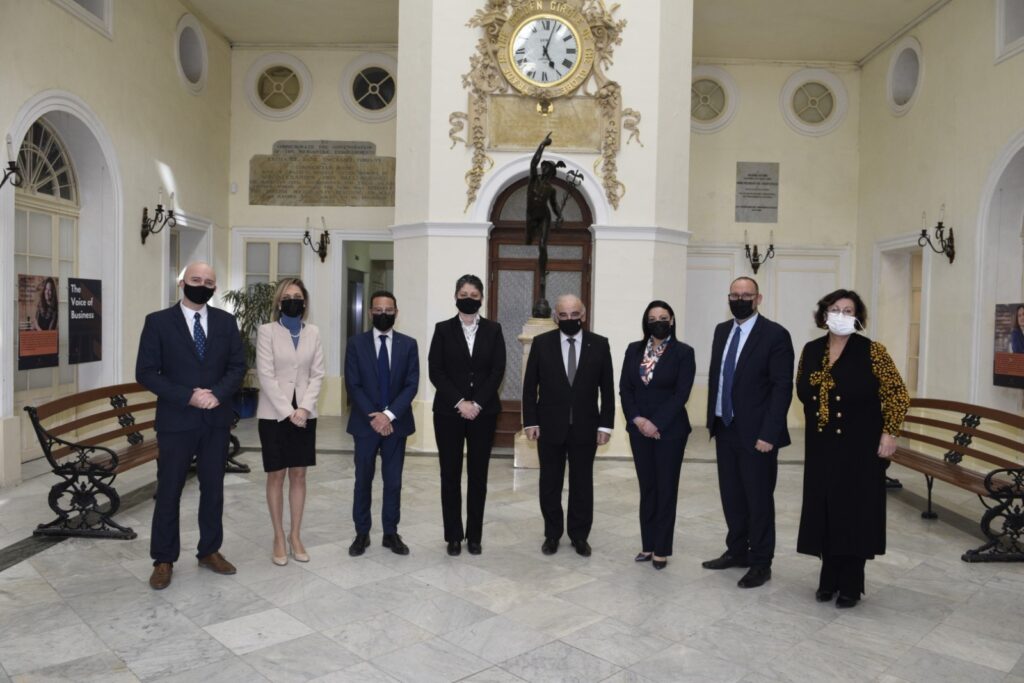Being part of a highly reputable business organization like The Malta Chamber feels like belonging to an extended family whose formation is guided by intrinsic values, which are shared by our members, thereby facilitating growth in a vibrant resource driven economy.
In an age when a technology powered society is constantly being nurtured, it becomes even more important to connect regularly with each other to transmit trust via our ties and cultivate long lasting business prospects and relationships. At the Malta Chamber we are committed to facilitate business to business, primarily by facilitating and introducing our members to other business owners, entrepreneurs and professionals who can help them achieve their aspirations in several ways.
Firstly, the most appealing aspect of being part of The Malta Chamber is that it places you in a prime position to be a genuine industry mover. Going beyond simply serving as a platform to boost sales and attain visibility, being a part of The Malta Chamber affords you the expertise and credibility required to effectively lobby your business interests with the policy makers and decision takers that matter. It is precisely this clout that gives credence to the claim that The Malta Chamber is the strongest voice for Maltese business, as evidenced by testimonials from our members who confirm that The Malta Chamber genuinely influences and steers towards substantive business-related policy and effective implementation.
Secondly, The Malta Chamber believes that concerns are best deciphered at source by listening to woes from the horses’ mouth before attempting to pilot solutions. One needs to be in the thick of things to sharply identify the root causes that need to be addressed. To mention one example, since I took over the role of CEO at The Malta Chamber a few months ago, I repeatedly brought together operators and practitioners from the entire supply chain, some of whom come from competing fronts, to understand how to best represent local manufacturers, importers, freight forwarders, shipping agents and retailers all of whom are facing a common challenge – that of the current international trade disruptions and supply chain bottlenecks which are contributing to inflationary pressures in both strategic and non-strategic markets, which in turn has consequentially exerted strain on the operations of local businesses. While these developments have been mostly homogenous for EU member states, micro island states like Malta tend to be hurt more than most.
For this reason, we have delved into technical processes and analyses with all industry cluster stakeholders to get an unfragmented macroeconomic picture of the current state of play in the international market whilst also focusing on micro elements to fine tune our thoughts. It is very clear that while the EU’s peripheral locations benefit from relative stability on the level of the economic, political, and regulatory environment due to EU membership, the companies located in island periphery locations not only suffer from competitive pressure and handicaps vis-à-vis the EU core, but also from non-EU competition. The Malta Chamber remains determined to defend the interests of our country’s operators by addressing the pain points strategically, pragmatically, and effectively – no matter how tall the order is. Our inhouse expertise allows us to advocate and preserve the interests of all our members, efficaciously and dynamically, even though, at times they come from competing fronts.
Thirdly, we will keep pushing for a more effective green and digital transformation, which we believe should go beyond the simple allocation of funds to projects described as such. We need to ensure that funds are being diverted to projects that will actually make a difference. We need to ensure that we have the proper infrastructure and skills to implement, support and maintain this transformation. We also believe that there is the need to carry a thorough assessment of the current EU State Aid framework and push for the necessary changes we require to qualify for a regional aid coverage that is much more representative of Malta’s needs.
These are precisely the lines of inquiry that our members expect us to raise and that is why when The Malta Chamber expresses itself, people take note, especially the leadership of the country. Over the coming months with a looming general election, the Malta Chamber will continue to up its game to contribute towards an honest social dialogue. We will continue being the ‘Voice of Business’ through our distinct, substantive, well-articulated and constant dialogue that voices business opinions soundly and reflects their aspirations coherently.
This article was first published in The Malta Chamber Economic Vision 2022.













